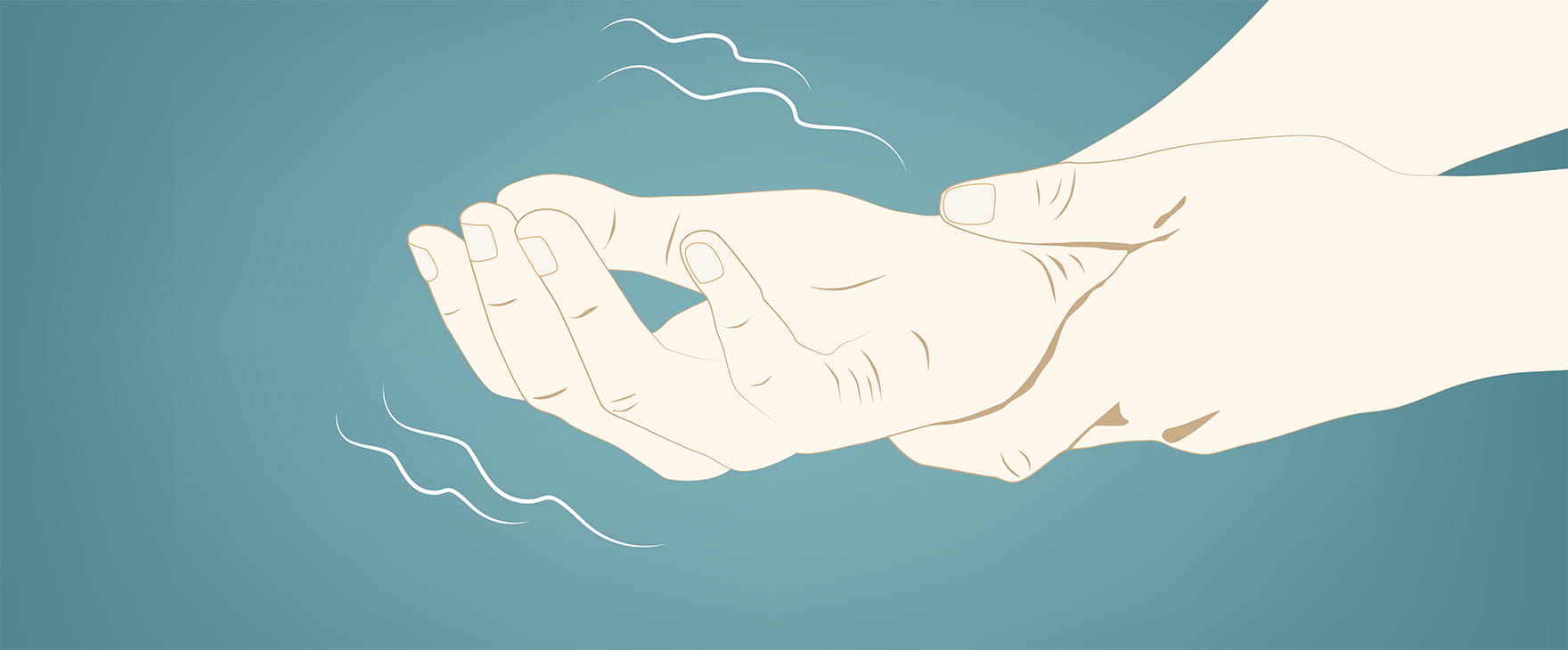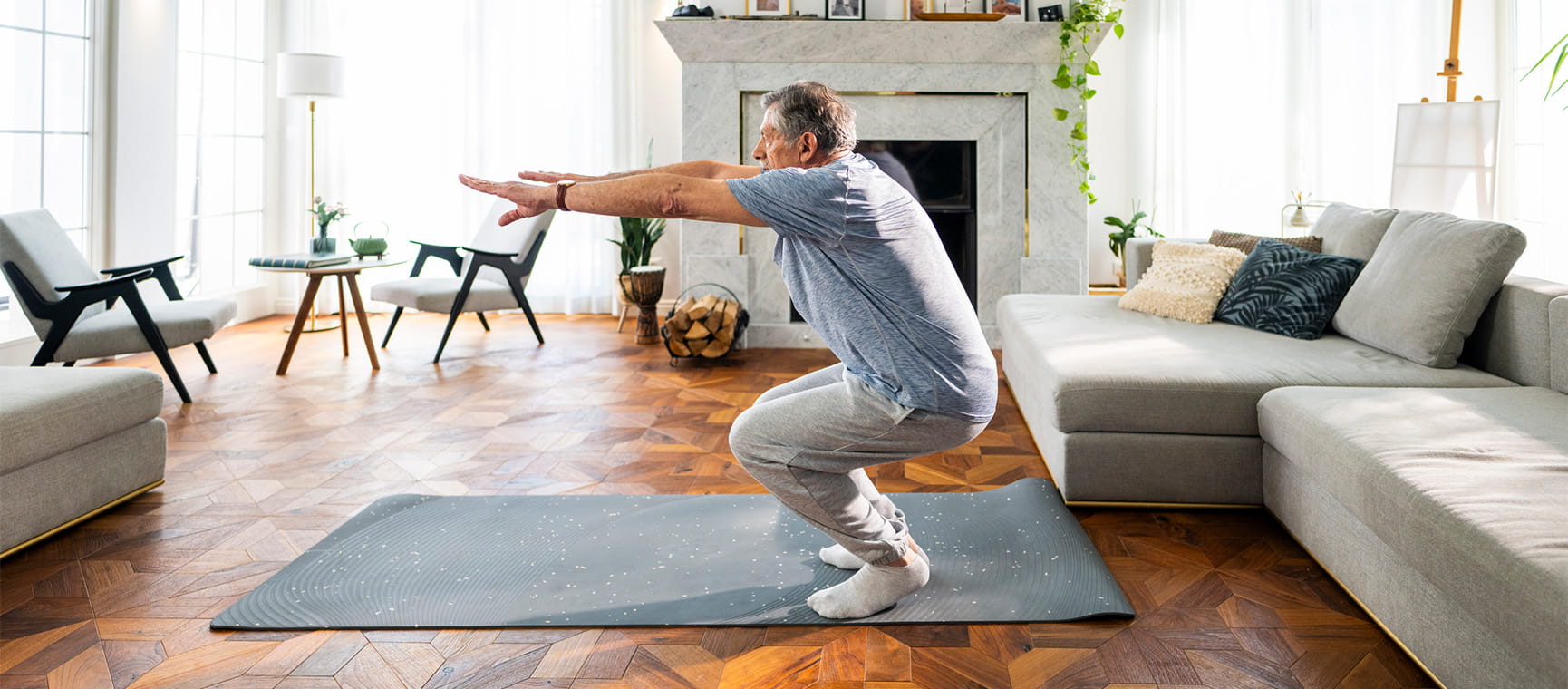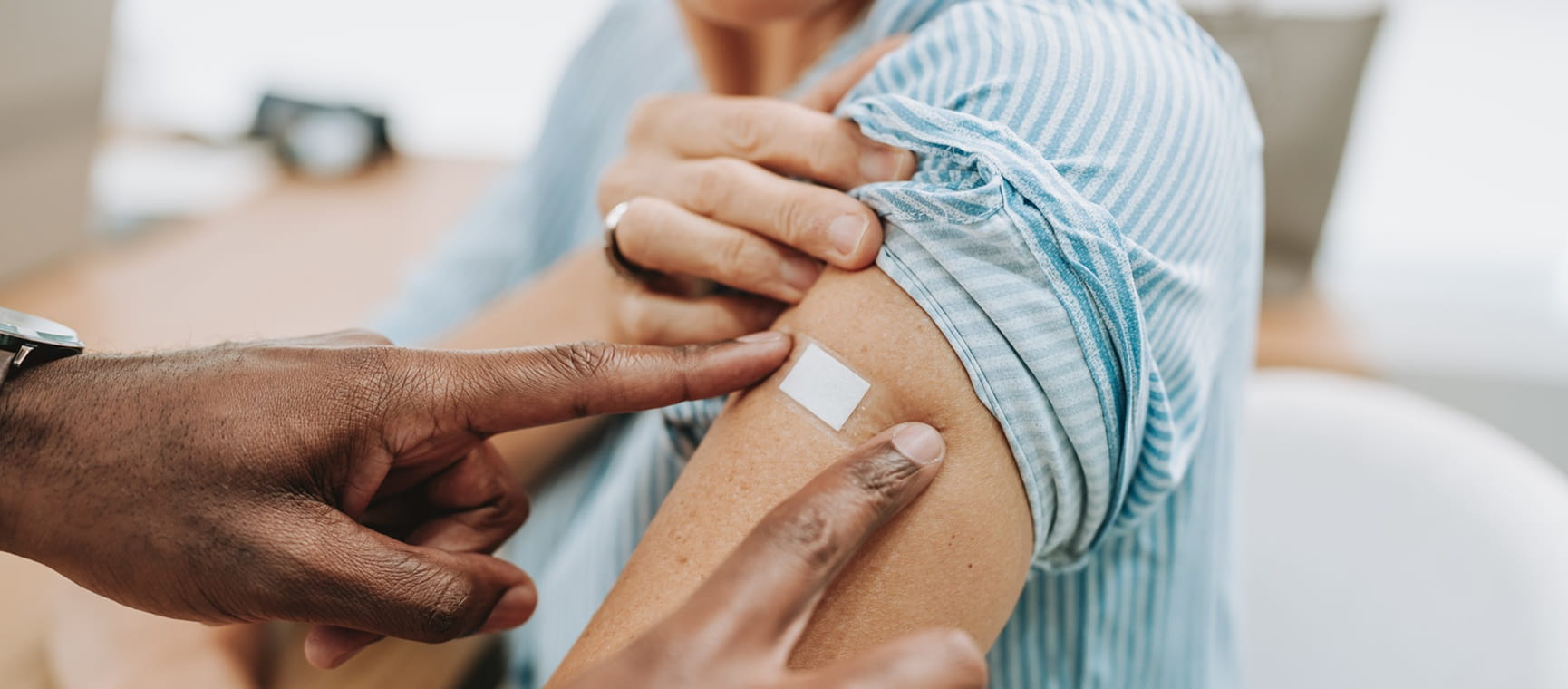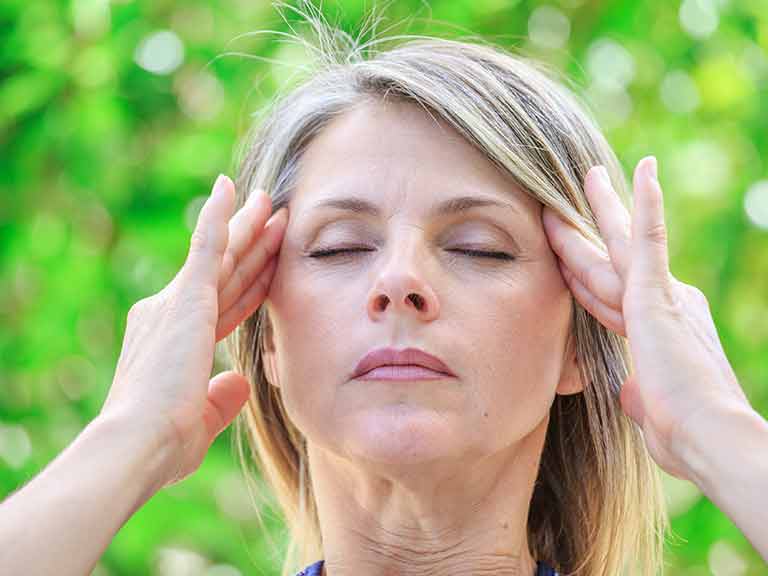Essential tremor: all you need to know
One million people in the UK suffer from essential tremor, where your hands, head or voice shakes - our expert guide has all the treatments.

One million people in the UK suffer from essential tremor, where your hands, head or voice shakes - our expert guide has all the treatments.

The most common movement disorder, essential tremor is generally an isolated, rhythmic tremor that affects both sides of the body, most commonly the upper limbs. It can also involve the head and voice and, less commonly, the legs.
It can affect any age – around 5% of cases start in childhood – but is more noticeable in older people as it can get worse over time.
"Essential tremor isn’t a symptom of a neurodegenerative disease but a subtle tremor that tends to start with movements such as writing or eating – or any activity where you are trying to do something," explains Jonathan Hyam, consultant neurosurgeon at the National Hospital for Neurology and Neurosurgery at Queen Square in London.
"It’s known as a benign tremor, but in some cases it can be progressive and eventually have a major impact on quality of life, making it difficult to do basic activities such as cleaning your teeth and eating or drinking. As a result, people can become socially isolated as they are embarrassed to be seen shaking in public.
"However, it doesn’t always follow this course – it can be mild and will reach a plateau."
Essential tremor is eight to ten times more common than Parkinson’s, a neurodegenerative condition that also causes tremor but comes with other symptoms. It’s why it is so important to get any tremor checked out by a doctor, says Mr Hyam.
The cause isn’t fully understood. Sufferers have abnormal activity in a brain circuit involved in movement, from the cerebellum at the back of the brain to the thalamus in the middle. It tends to run in families and is made worse by anxiety and nervousness.
One sufferer, Valerie Bryan, saw a doctor when her hands started shaking so much she couldn’t eat without stabbing her lip with a fork.
"I had to drink coffee and tea – and my gin and tonic – with a straw," says Valerie, 73, a retired music teacher from Ullapool, in the Scottish Highlands
"At home I couldn’t do any sewing as I couldn’t even thread a needle, and playing my flute was becoming increasingly difficult too."
Tremor had been part of her life since her teens and was especially noticeable when she was nervous. "I just blamed myself for being anxious," she says. "I didn’t even think it was a medical condition and never saw a doctor about it."
By her forties, Valerie’s symptoms were harder to ignore. "I had to give up wearing make-up as my hands shook so much I couldn’t apply it properly. Cooking was really difficult too, and my handwriting was barely legible. I was embarrassed to see it when I wrote a card or letter."

Valerie, who was diagnosed with essential tremor at the age of 59, was offered beta blocker drugs and resisted for five years, but eventually started on propranolol for specific occasions, which helped a little.
She found deep breathing techniques useful, as well as the Alexander Technique, a method for improving posture and co-ordination.
There are surgical treatments too, including deep brain stimulation, where a surgeon makes small holes in your skull, but it didn’t appeal.
These don’t cure essential tremor but can control symptoms in some people and include the beta blockers propranolol, nadolol and atenolol, plus anti-seizure drugs primidone, topiramate and gabapentin, as well as benzodiazepines, such as diazepam and clonazepam.
Having Botox injections can help control tremors for up to three months at a time and they are available on the NHS.
This isn’t an official treatment for essential tremor, but the National Tremor Foundation says two units of alcohol (about one glass of wine or a pint of beer) can lessen symptoms in 50% of people for up to four hours, so it can be useful for social occasions – though it warns there can be "rebound" tremors the following day.
A long, thin electrical probe is placed into the thalamus area of the brain. A wire from the probe runs under the skin to a pacemaker-like device in the chest and sends electrical pulses to interrupt signals that may be causing tremors.
Side effects can include speech problems and balance issues, but the operation is reversible.
Sufferers have reported benefits from a wide range of alternative treatments, though there is limited or no solid evidence for them.
They include the Alexander Technique, hydrotherapy, aromatherapy, reflexology and massage therapy.
The latest treatment is magnetic resonance guided focused ultrasound (MRgFUS). It’s non-surgical and doesn’t involve drilling into the skull but instead uses high-intensity ultrasound guided by MRI to target the area of the brain responsible for tremor – with instantaneous results.
Valerie was told she was suitable for the treatment after scans and cognitive tests but was warned the treatment had a risk of side effects including balance problems and slurred speech.
"I decided to go ahead as my tremors were causing me so much distress and I’d reached the end of my tether."
"The doctors explained they check for how much effect the ultrasound is having by stopping treatment periodically and testing speech, balance and tremor so as not to overdo it, and I thought it was worth the risk."
She finally had the operation in May 2022. A 3D frame is fitted to the scalp to help target the ultrasound to the thalamus, the precise area of the brain controlling involuntary movement. Only one arm can be treated at a time.
"I had a local anaesthetic to attach the frame to my head and felt no pain," Valerie adds. "I also had to have my head shaved, but it seemed a small price to pay for fixing the problem."
Mr Hyam says the treatment is typically given in 10 to 11-second bursts between four and six times. In Valerie’s case, the ultrasound treatment took 40 minutes, and her tremor dramatically reduced immediately.

A follow-up study of 40 trial participants with moderate to severe tremor by Harvard University researchers published in the Journal of Neurosurgery found that five years after treatment, they continued to see their tremors reduced by 70%. Three years on from the procedure, Valerie says her right hand is still completely steady.
MRgFUS is now approved by NICE, the government’s drug and treatments advisory body, as an NHS treatment for essential tremor, but is so far only available at specialist centres including Liverpool, Dundee and London. It is also available privately for around £25,000.
"It’s incredible after all these years to have one steady hand," says Valerie.
"I can hold a glass without spilling the contents, put on make-up, write cards and letters neatly, and cook safely and even thread a needle and put petrol in my car."
"Although I still can’t play the flute, I can play the piano and sing and I hope to get the other arm done next, especially as my left hand has got considerably worse. The treatment has been totally life-changing for me.
"The best thing, though, was the acknowledgement that my tremors weren’t my fault after all. All those people who had told me all my life just to calm down and I’d stop shaking had been wrong. It wasn’t my anxiety causing it, but the fact that my brain was wired wrong."
Jo Waters is an award-winning health and medical journalist who writes for national newspapers, consumer magazines and medical websites.
She is the author of four health books, including What's Up with Your Gut? and is a former chair of the Guild of Health Writers.

For a limited time, enjoy 3 issues of Saga Magazine for just £1. Receive the next 3 print editions delivered direct to your door, plus 3 months’ unlimited access to the Saga Magazine app—perfect for reading on the go.
Don’t miss your chance to experience award-winning content at an exceptional price.

Are you retiring at the wrong age? The best age to retire for your body, brain, happiness and pocket.


Everything you need to know about the lung infection, and how you could be ill with “walking” pneumonia without realising it.

Strong calves for a strong mind: how they support our circulation and brain health, with easy moves to strengthen yours at home.


Our GP Dr Mark Porter explains what can cause itchy skin, which is a common problem as we get older.

Worried you’ve morphed into Victor Meldrew? Find out how to battle that bad mood, and what to do if you’re stuck with a grouchy loved one.

The benefits of heat and cold therapy, and how Nordic bathing won over our nervous writer.

Here’s how to spot the symptoms of heat disease and reduce your danger.


The NHS winter vaccination campaign kicks off next week. Here’s the lowdown on what you need to book.

Pilates for back pain – what to do if you are suffering, and five gentle exercises that could help.

Dizziness or vertigo: a sensation of spinning, can stop us doing everyday things for fear of falling. Try these tips to stop feeling dizzy


You don’t have to put up with bladder leaks. We try out the latest pelvic floor gadgets for men and women.

Cataracts are a normal part of ageing. Learn how to spot the signs – and when it’s time to consider surgery.